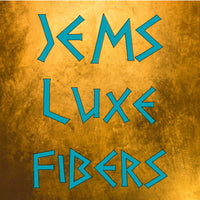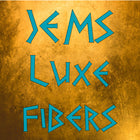Chimera
A “Chimera” is a Greek monster with traits of the lion, the goat, and the serpent. The Chimera was one of the most outlandish monsters in Greek mythology, but surprisingly its description changed very little over the course of the centuries. Artists included the three heads, each coming from the part of the body that corresponded with the animal type. Rather than growing near one another the creature had a typical lion’s head, a goat’s head growing out of its back, and a snake’s head at the end of its tail.
Exaggerated ears and breasts show that the creature is female, even though it does have a short, ragged mane. This was typical in Greek art, where a “lioness“ was shown with a mane. The Chimera can still be identified as female in art, however, because its ears are showing. The convention in the art of the time was to show females with shorter, sparser manes than the long ones typical of males.
The creature also has a goat’s head, rising from between its shoulder blades. The goat’s head appears to be male, since it has horns and a beard. Chimera was known to be cunning goat or a “devious doe” in her battles. Finally, the monster’s lion tail morphs into a snake, with a “venomous” serpentine head replacing the lion’s natural puff of fur.
Chimera was reputed to be “near invincible,” for she had the strength of a lion, the cunning of a goat, and the venom of a snake. But this monster’s most unusual and deadly weapon, by far, was her ability to breathe fire. The fire spewed out from the goat’s head and devastated any challengers who approached the beast.
The Chimera was one of the “noble offspring” of a legendary pairing: Typhon and Echidna. Her father, Typhon, was known as Father of All Monsters and her mother, Echnida, Mother of all Monsters. Typhon, was an ancient and monstrous giant who was believed to be the most dangerous creature in all of Greece. His mate was the next most monstrous creature in Greece, a half-woman, half-serpent named Echidna.
The Chimera was defeated when Bellerophon was given the task of killing the monster. Bellerophon may well have died if a chance encounter had not provided guidance. He came across a seer who advised him to capture the flying horse Pegasus to aid him in his quest. The flying horse helped Bellerophon to dodge the monster’s fiery breath, but he could not manage to damage it. The Chimera’s hide was too thick for arrows to pierce and even his spear did not break its skin.
The spear’s failure to stab the Chimera gave Bellerophon an idea, though. While the weapon’s point could not harm the monster, its material might.
Urging Pegasus to top speed, Bellerophon flew directly at the Chimera’s leonine head. He aimed his spear at the monster’s open mouth, even though he knew he could not damage it.
Pegasus veered away at the last moment, leaving the lead tip of Bellerophon’s spear lodged deep in the Chimera’s throat. When the monster attempted to breathe fire at them, the lead melted and blocked its airway suffocating on its own fiery breath.
The world chimera today refers to almost any hybrid creature. These types of monsters, which combined features from many different animals, were common in mythology around the world.
After the myths of ancient Greece experienced a resurgence in popularity, chimera was still used as a general word to describe any hybrid creature. Most creatures called chimeras were quadrupedal, often retaining their namesake’s lion body if nothing else.
The name has even been used in genetics, describing a rare condition in which separate embryos fuse together to create an individual with two sets of DNA. Chimerism is relatively common in cats, where it is often seen in mismatched eyes or contrasting fur colors, but has also been attested in humans
Available in the following yarn bases. For a listing of all yarn bases click here. Yarn Bases
Care of your hand knit garments
Please hand wash cold or lukewarm water and lay flat to dry. Even though this yarn does contain superwash merino, I do always recommend that you hand wash your knitwear. We use colorfast acid dyes for dying our yarn, and rinse until water runs clear. There may be a chance that some dye may bleed slightly in the first wash of your finished item. This does sometimes happen for speckled yarn and stubborn colors that are prone to bleed. For the first couple of washes, hand wash separately to be sure that no further bleeding.
There are no dye lots. We always try to sell from same dye lots but if not sure, we recommend blending the skeins as you work. Color saturation can differ from different dyelots.








